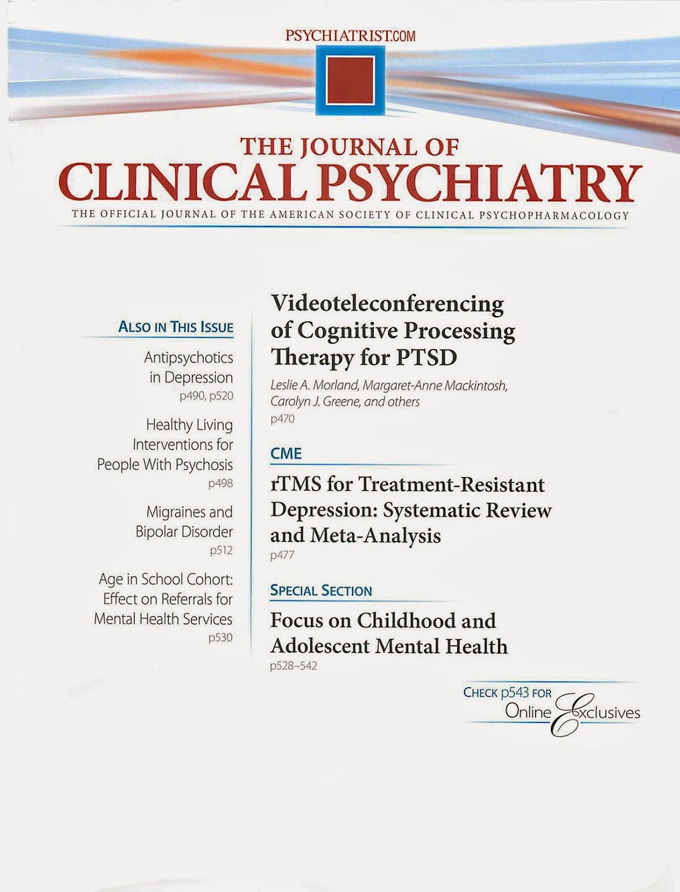Association of obesity and inflammatory marker levels on treatment outcome: results from a double-blind, randomized study of adjunctive L-methylfolate calcium in patients with MDD who are inadequate responders to SSRIs.
Abstract:
“OBJECTIVE: Adjunctive treatment with L-methylfolate calcium significantly improved treatment outcomes in patients with major depressive disorder (MDD) and an inadequate response to antidepressants. This post hoc exploratory analysis evaluated baseline concentrations of cytokines (interleukin [IL]-1α, IL-1β, IL-2, IL-4, IL-5, IL-6, IL-8, IL-10, IL-12p70, IL-13, and IL-17; tumor necrosis factor α [TNF-α]; and interferon γ [IFN-γ]), high-sensitivity C-reactive protein (hsCRP), insulin, adiponectin and leptin and body mass index (BMI [kg/m2]) on L-methylfolate calcium treatment response. METHOD: Adults with DSM-IV MDD and an inadequate response to a selective serotonin reuptake inhibitor (SSRI) were eligible. Patients were randomized 3:3:2 according to the sequential parallel comparison design to placebo versus placebo, placebo versus L-methylfolate calcium (15 mg/d), or L-methylfolate calcium versus L-methylfolate calcium (15 mg/d) during two 30-day phases. The primary outcome was change on the 17-item Hamilton Depression Rating Scale (HDRS-17). Treatment effect with 95% CIs was estimated from baseline concentrations of individual biomarkers and combinations. Cytokines were measured by immunoassay; adiponectin, insulin, and leptin by radioimmunoassay; and hsCRP by a standard turbidimetric assay. The effects of baseline biomarker levels (above and below the median) on outcome were analyzed. The first participant was enrolled July 14, 2009, and the last participant completed April 28, 2011. RESULTS: Mean change on HDRS-17 from baseline was significantly improved with L-methylfolate calcium versus placebo (pooled treatment effect, -2.74; 95% CI, -4.99 to -0.48; P = .017) overall and for those with baseline BMI ≥ 30 (pooled treatment effect, -4.66; 95% CI, -7.22 to -1.98; P = .001) but not BMI < 30. Pooled mean changes in depression across treatment for baseline levels of individual markers above median were significant (L-methylfolate calcium vs placebo) for TNF-α, IL-8, hsCRP, and leptin (pooled treatment effects, -4.33 to -3.94 [P ≤ .02]) and for combinations of BMI ≥ 30 with elevated levels of TNF-α, IL-6, IL-8, hsCRP, and leptin (pooled treatment effects, -6.31 to -3.98 [P ≤ .05]). CONCLUSIONS: In this exploratory analysis, inflammatory and obesity-related factors were associated with greater symptom improvement with L-methylfolate calcium. Combinations of BMI ≥ 30 with elevated IL-6, IL-8, hsCRP, TNF-α, and leptin predicted improved response to L-methylfolate calcium in MDD patients with an inadequate antidepressant response. Further studies are necessary to confirm these findings. TRIAL REGISTRATION: ClinicalTrials.gov identifier: NCT00955955.”
Authors:
Shelton RC, Pencina MH, Barrentine LW, et al:
Journal:
J Clin Psychiatry 76(12):1635-1641, 2015 26613389

